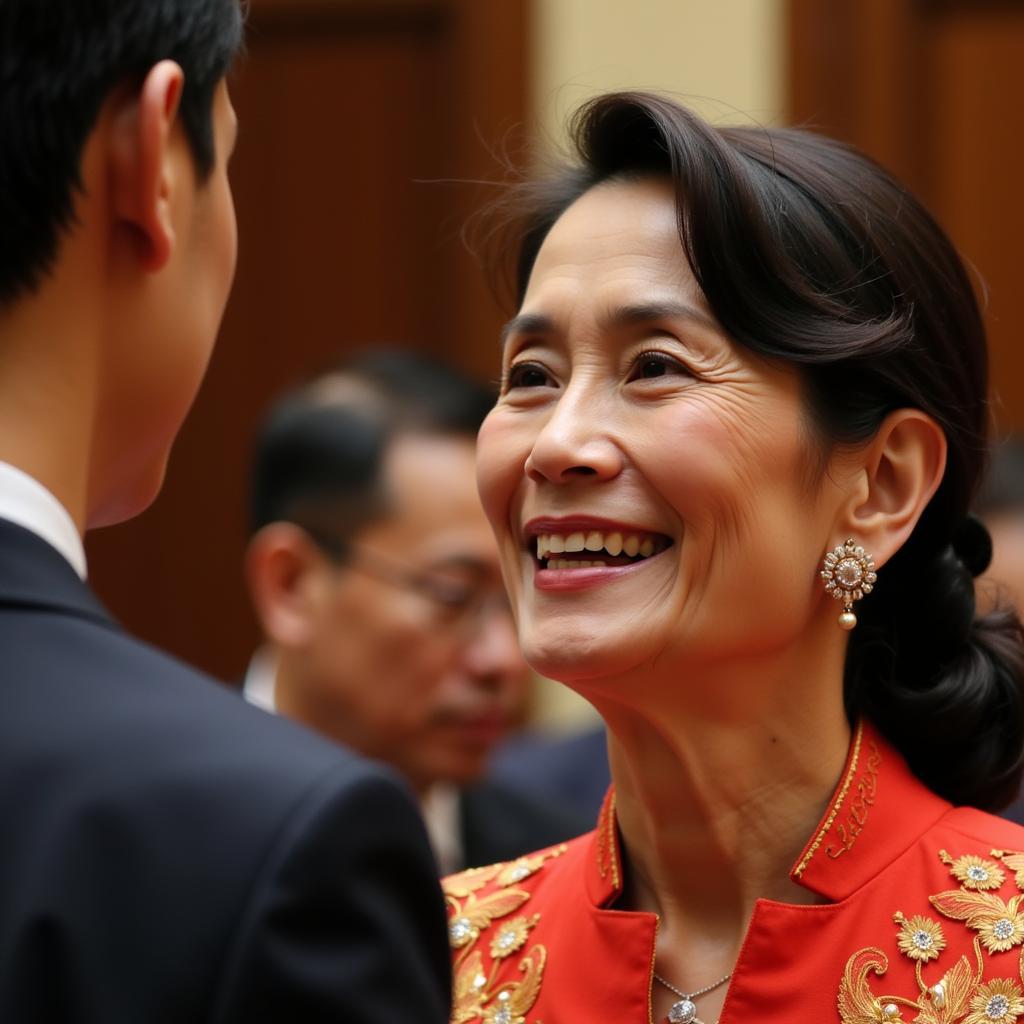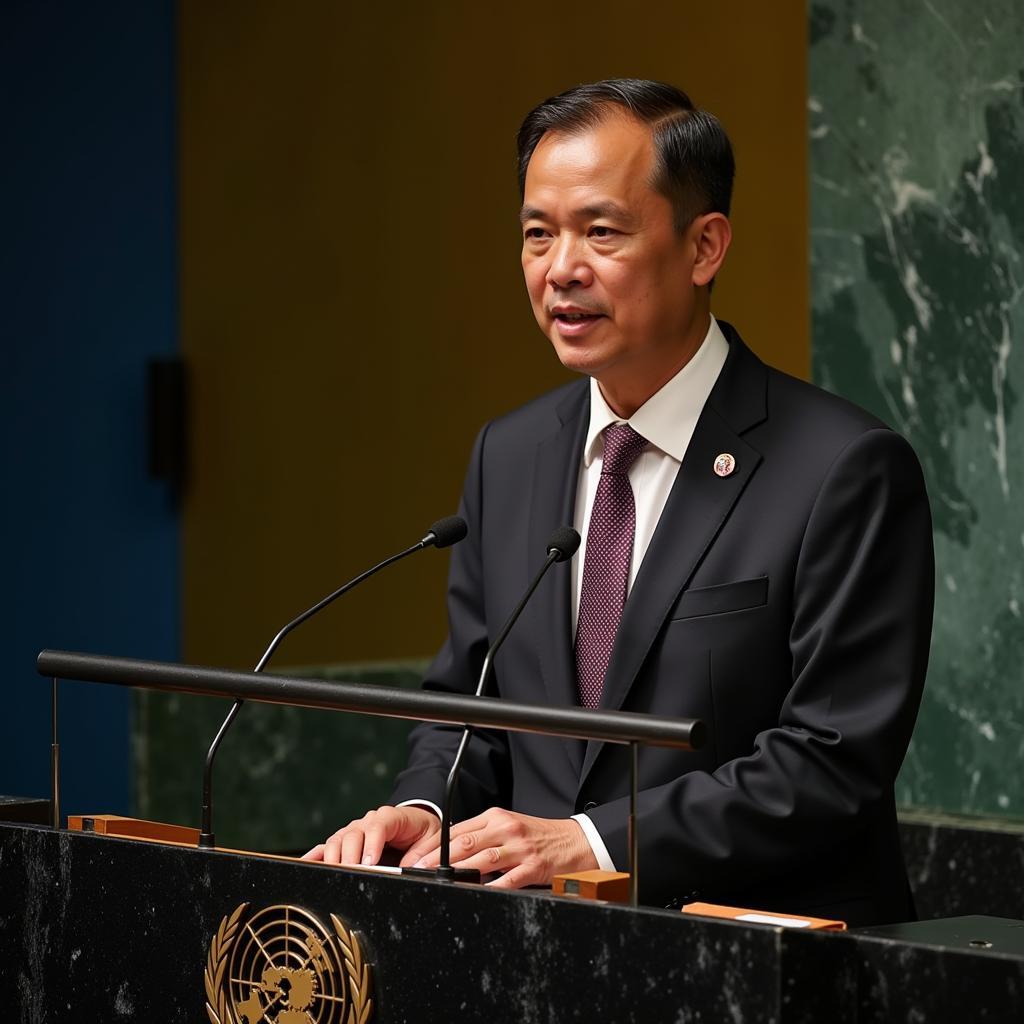The relationship between ASEAN, Aung San Suu Kyi, and the Malaysian Prime Minister has been a focal point of regional dynamics. Aung San Suu Kyi, once a symbol of democracy and a Nobel Peace Prize laureate, faced international criticism for her perceived silence on the Rohingya crisis during her time as State Counsellor of Myanmar. This stance complicated her relationships with ASEAN leaders, including the Malaysian Prime Minister, who has been vocal about the plight of the Rohingya people.
 Aung San Suu Kyi meeting with ASEAN leaders
Aung San Suu Kyi meeting with ASEAN leaders
The Rohingya Crisis and ASEAN’s Non-Interference Principle
The Rohingya crisis, marked by allegations of human rights abuses against the Rohingya Muslim minority in Myanmar, presented ASEAN with a significant challenge. The bloc’s principle of non-interference in the internal affairs of member states often limits its ability to address such situations directly. However, the humanitarian implications of the crisis, including the displacement of hundreds of thousands of Rohingya refugees to neighboring countries like Malaysia, put pressure on ASEAN to find a solution.
Malaysia’s Stance and Calls for Action
Malaysia, under successive Prime Ministers, has been a vocal critic of Myanmar’s handling of the Rohingya crisis. The Malaysian government has provided refuge to a significant number of Rohingya refugees and has called for stronger action from ASEAN. This stance has sometimes created friction between Malaysia and Myanmar within the ASEAN framework.
 Malaysian Prime Minister addressing the Rohingya crisis
Malaysian Prime Minister addressing the Rohingya crisis
Aung San Suu Kyi’s Complex Legacy
Aung San Suu Kyi’s response to the Rohingya crisis, often perceived as muted, drew criticism from international human rights groups and strained her relationships with some ASEAN leaders. While acknowledging the complexities of the situation, many leaders within the bloc expressed disappointment that Aung San Suu Kyi, once a beacon of hope for democracy and human rights, did not leverage her moral authority to advocate for a more peaceful resolution.
Finding Common Ground: ASEAN’s Role in Seeking Solutions
Despite the challenges posed by the Rohingya crisis, ASEAN has played a role in facilitating dialogue and seeking solutions. The bloc established the ASEAN Coordinating Centre for Humanitarian Assistance on disaster management (AHA Centre) to coordinate humanitarian aid and disaster relief efforts in the region. ASEAN has also worked to facilitate repatriation efforts for Rohingya refugees, though progress has been slow.
Conclusion
The dynamics between ASEAN, Aung San Suu Kyi, and the Malaysian Prime Minister surrounding the Rohingya crisis highlight the complex interplay of politics, humanitarian concerns, and regional diplomacy. While ASEAN’s non-interference principle limits its ability to directly intervene in member states’ internal affairs, the bloc has sought ways to address the humanitarian consequences of the crisis and facilitate dialogue among stakeholders. As the situation continues to evolve, finding a sustainable and just solution to the Rohingya crisis remains a priority for ASEAN and its member states.
